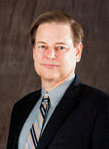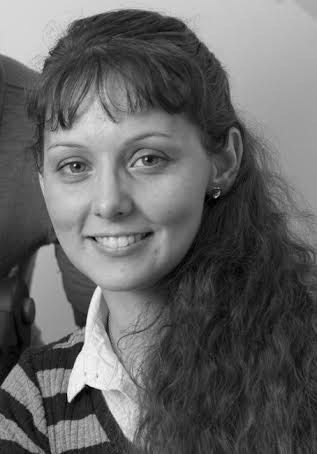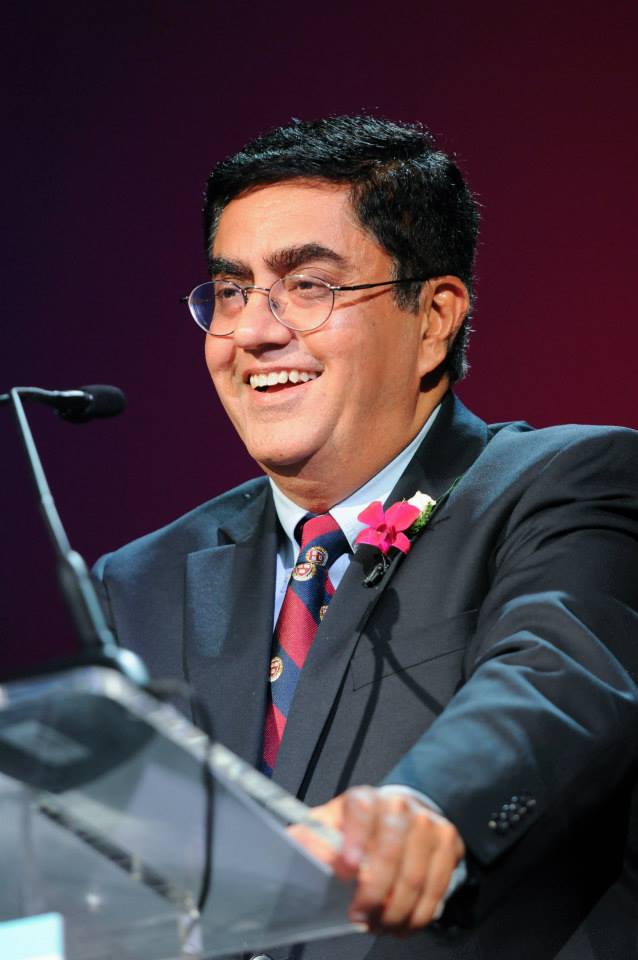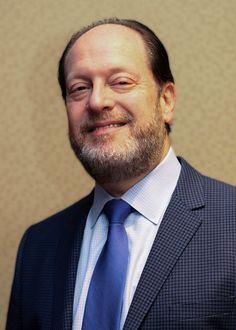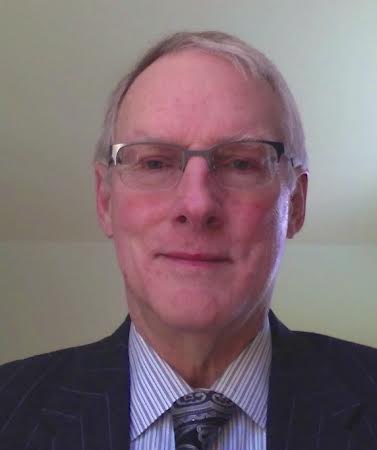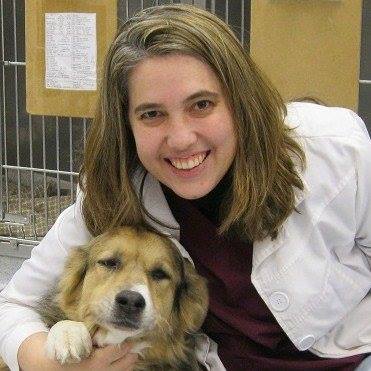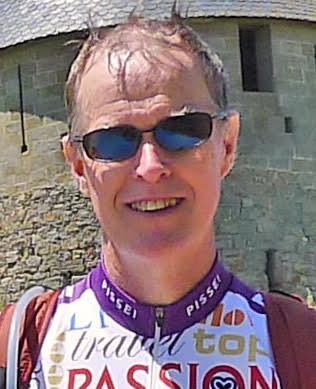Rare New England Conference 2016
Richard Boles, MD – is a pediatrician with specialty in genetics and has spent twenty five years in clinical practice diagnosing and treating mitochondrial and metabolic diseases. He has an interest in “functional” issues in multifactorial conditions that often lead to intermittent disease manifestations. Dr. Boles has traveled around the country to provide testimony for families in litigation for accusations of Medical Child Abuse.
Jessica Shriver, MA Theology, MS Bioethics - is a patient advocate and ethicist specializing in medical decision-making and care delivery for patients and families with rare diseases. Her research interests include ethical issues in the rare diseases community, the ethics of pediatric medical decision-making, false medical child abuse accusations, and pediatric palliative and end-of-life care.
Pradeep Chopra, MD, MHCM, - is a pain medicine specialist with a special interest in complex pain conditions in adults and children. He is Assistant professor at Brown Medical School, RI, and Director of the Multidisciplinary Pain Management Center.
Mark Korson, MD – is a pediatrician and metabolic geneticist who directed the Metabolism Clinic at Children's Hospital of Boston from 1990-2000 and at Tufts Medical Center from 2000-2014. He is co-founder and Senior Medical Director of the Genetic Metabolic Center for Education, and co-founder and co-director of the North American Metabolic Academy, sponsored by the Society for Inherited Metabolic Disorders
Richard Barnum, MD – directed the Boston Juvenile Court Clinic from 1982 to 2003, conducting evaluations of thousands of children and families involved in juvenile court, and has written on issues of forensic assessment of children and families and mental health concerns in the juvenile justice system. Since 2003, he has been in the private practice of psychiatry, providing consultation and treatment for children and families in community and residential settings. This work has included increasing involvement with children suffering from various har
Aurora Richards-Stipnieks - has her B.A. in International Relations from Tufts University and her D.V.M. from the College of Veterinary Medicine at Texas A&M. She is also one of the founding members of TCAPP (The Coalition Against Pediatric Pain), a non-profit established in 2011 to support families and physicians that deal with chronic pediatric pain conditions. She has Ehlers Danlos Syndrome and is raising two children with Ehlers Danlos Syndrome and a Multitude of Other Chronic Diseases (some yet to be established). Her educational background and work background has been able to help her better navigate the medical maze for herself and her children that we all find ourselves in.d-to-diagnose medical conditions.
Dr. Stephen C Boos, MD - is a board certified pediatrician and child abuse sub-specialist. Dr. Boos did his bachelor’s degree in biology at the Massachusetts Institute of Technology, focusing in immunology. He then attended Columbia University College of Physicians and Surgeons, earning a Medical Doctorate in 1983.
Dr. Boos trained in pediatrics at the David Grant USAF Medical Center. Thereafter he practiced general pediatrics in multiple international assignments, with the Air Force, for eight years. In 1994 he returned to David Grant Medical Center to join the teaching staff. During his career he had developed special skills in management of child behavior and in the assessment of child abuse, and he strengthened the residency curriculum at David Grant in these areas.
In 1998, Dr. Boos was selected for a post-doctoral fellowship in child abuse pediatrics. He studied with Dr. John McCann, at the Child and Adolescent Abuse Resource and Education Center at the University of California Davis Medical Center in Sacramento California. From 2000 to 2003 he was on staff at the National Naval Medical Center in Bethesda MD, and served as the medical consultant to the Air Force Surgeon General in Child Abuse and Neglect.
Dr. Boos has held many child abuse pediatrics positions since his retirement from the military in 2003. He was on staff at the New Jersey CARES institute of the University of Medicine and Dentistry of New Jersey. He was the original medical director of the Treehouse Child Assessment Center in Rockville MD. He was medical director of the Pediatric Forensic Assessment and Consultation Team at INOVA Fairfax Hospital in Falls Church VA. In 2008 he accepted a position at the Family Advocacy Center at Baystate Children’s Hospital in Springfield MA, where he currently serves as Medical Director.
Dr Boos has written extensively on the subject of child abuse, authoring both published manuscripts and textbook chapters on sexual abuse, neck injury, head injury, medical neglect, differential diagnosis in child abuse medicine and the diagnostic process in child abuse medicine. He has presented on a wide variety of child abuse topics at major international conferences. Dr. Boos is a member of the Ray Helfer Society, an honor society for experienced child abuse physicians. He is a fellow of the American Academy of Pediatrics, and a member of the Section on Child Abuse and Neglect, and the sitting Chairperson of the Child Abuse and Neglect Committee of the Massachusetts chapter of the American Academy of Pediatrics.
According to the NIH, almost 30 million American adults and children live with a rare disease. Yet, our country's healthcare system is not well-designed to support the complex, long-term care needs that rare disease patients require. Patients and caretakers dealing with rare diseases face many challenges in managing medical care, with one of the most often reported concerns centering on the difficulties of communicating effectively with care providers.
Patients and families must rely on care teams to order and organize needed medical care, but conflicts and communication problems with providers can jeopardize many aspects of a patient's well-being. Communication problems involving rare diseases can delay treatments and lead to incorrect diagnoses, as well as result in accusations of "doctor shopping", fabricating medical problems, medical child abuse and drug seeking, and may lead to being dropped from care by doctors, being denied care in Emergency Rooms or in the hospital, denial of needed medications, refusal of other doctors to consult with a patient's expert specialists, and more.
November 12 & 13, 2016
Cardi's Furniture Community Room
South Attleboro, Ma
Presentation topics include:
"Medical Child Abuse Accusations and the Rare Disease Patient"
What is medical child abuse, why are accusations of medical child abuse increasing in the United States, and why are families of children with rare or controversial diseases at increased risk of accusations? What are some of the care situations that elevate the risk of an accusation against families, and what can parents do to protect themselves and their children?
"Medical Ethics for Patients and Families"
An introduction to how medical providers make decisions in patient care, how medical decision-making differs between pediatric and adult care, and how patients and families can use this information to participate more effectively in medical care, and collaborate more successfully with care providers.
"Keeping safe in a medical setting; Protection strategies"
Living with a complex disease or one that is rare or not well understood has many challenges, including navigating a complex health care system that is only growing in complexity. However, situations sometimes arise in which mistrust enters the patient-doctor relationship, either around the symptoms or the diagnosis, and that can lead to medical and legal complications that interfere not only with a patient’s management plan but also his/her very wellbeing. This talk reviews some of the causes and trigger factors that lead to mistrust, and provides some guidance in how to prevent or ameliorate such a difficult and potentially dangerous situation. A role-playing session provides the opportunity for participants to apply strategies learned during the talk.
"Navigating the 4Ms: Mitochondria, Mental, Munchausen, and Multi-factorial Disease"
This talk will explore mitochondrial disease as a multifactorial condition that has many genetic and environmental factors leading to disease, but often not a single major "cause". Intermittent dysfunction of nerve cells throughout the body can lead to "functional" issues such as dysautonomia, pain, GI dysmotility and fatigue, while dysfunction of nerve cells in the brain can lead to "mental" or "psychiatric" issues such as depression, anxiety, OCD, and autism. Add in the complexities of mitochondrial genetics, intermittent disease manifestations, and the presence of varied disease in relatives (such as the mother), and there is a "perfect storm" for skepticism among health care providers and others. How can one navigate the complexities to arrive at a consensus diagnosis and treatment plan?
"When the Doctor says, "It's all in her head ...", What can Patients and Families Do?"
Review of common symptoms associated with mito/EDS (primarily dysautonomia). Explanation of how these symptoms may be ascribed to emotional problems only (e.g. anxiety, depression, “stress”) and how this may sometimes be correct, but often isn’t. Exploring how (mis)diagnosis is potentially traumatic, disrupts relationship, generates further stress, exacerbates problem, may lead to MCA allegation
We will learn strategies for responding, such as, not taking offense, considering possibility of stress and potential value of MH consultation, seeking help for underlying dx of problem, and appropriate rx.
"Preparing for Emergencies"
A review on how patients can prepare for a visit to the emergency room by building packets that include needed medical information, being sure to have a health care proxy in place, what they can do to help local emergency personnel understand their illness, and more.
"The Spectrum of Medical Child Abuse and What is Happening Across the Country?"
Dr. Boles will present (anonymized) cases from his own experience in 25 years of clinical practice as well as being a Medical Expert in courts across the country as these cases are litigated. What do physicians and families do that sometimes lead to excessive medical care? What do families do that might trigger an investigation? What are the avenues that can intervene successfully in the process short of filing an accusation, and short of a trial? What kind of cases go to court that do not get press coverage? What are the outcomes?
"Chronic Pain - How to Talk to Your Doctor" - The talk will focus on how to discuss pain issues with your physician, understanding the complexities of finding the right care
"Psychological Profile Contrast and Similarities Between Rare Disease Families and Munchausen Perpetrators"
Learn about difficulties physicians, social workers, child protection workers and other care team members face when distinguishing between families dealing with rare, complex disorders and children who are victims of Munchausen Syndrome by Proxy or Medical Child Abuse.
"How to Get the Most Out of that Appointment with a Specialist You've been Waiting for for Months to Years"
How to Organize for Your Particular Appointment
How to Organize and Keep Track of Your Personal Records
“Advocating for Children When Faced With the Unknown” - Abstract pending.
"Staying Safe in a Medically Complex World - Improving Communication between Patients, Families, and Medical Teams"
999 Newport Ave (Rt 1) South Attleboro, Ma 02703
Speakers:
RNE has brought together a group of medical specialists well-versed in the many problems faced by rare disease patients and their families. Through education on medical decision-making, conflict resolution strategies, guided role playing of difficult care conversations, and more, RNE will provide patients and caregivers with tools to resolve medical conflicts, and avoid harmful care problems.
RNE is proud to announce these speakers, known for their dedication to the well-being of patients and families dealing with rare diseases.
Conference Schedule
Saturday
- 8:45 - 9:15 - Registration
- 9:15- 9:20 - Welcome - Julie Gortze RN, RNE Founder/President
- 9:20 - 9:30 - Opening Remarks - John Campbell, RNE Board of Director
- 9:30 - 10:15 Navigating the 4Ms: Mitochondria, Mental, Munchausen, and Multi-factorial Disease - Richard Boles, MD
- 10:15 - 11:00 "Medical Child Abuse Accusations and the Rare Disease Patient" - Jessica Shriver, MATh, MBE
- 11:00 - 11:10 - Break
- 11:10 - 12:10 “Advocating for Children When Faced With the Unknown” - Stephen Boos, MD
- 12:10 - 12:40 - Forum - “Collaborating for Progress” - Richard Boles, MD, Jessica Shriver, MATh, MBE, Stephen Boos, MD
- 12:40 - 1:15 - Lunch
- 1:15- 2:00 - "Medical Ethics for Patients and Families" - Jessica Shriver, MATh, MBE
- 2:00 - 2:45 - “The Spectrum of Medical Child Abuse and What is Happening Across the Country?" - Richard Boles, MD
- 2:45 - 2:55 - Break
- 2:55 - 3:55 - Small group discussion sessions, ”Sharing our thoughts?”, Richard Boles, MD, Mark Korson, MD, Jessica Shriver, MATh, MBE, Julie Gortze, RN,
- 3:55 - 4:00 Day wrap - Julie Gortze, RNE Founder/President
Sunday
- 8-8:30 - sign in
- 8:30 -9:45 - “Chronic Pain, how to talk with your doctor” - Pradeep Chopra, MD
- 9:45 - 10:30am - "When the Doctor says, "It's all in her head ...", What can Patients and Families Do"? - Richard Barnum, MD
- 10:30 - 10:40 - Break
- 10:40 - 11:25 - "How to Get the Most Out of that Appointment with a Specialist You've been Waiting for for Months to Years"- Aurora Richards-Stipnieks, Board of Director, The Coalition Against Pediatric Pain (TCAPP)
- 11:25 - 11:45 - “Preparing for Emergencies”- Julie Gortze, RN
- 11:45 - 12:15 - Lunch
- 12:15 - 1:00 - "Keeping safe in a medical setting; Protection strategies" - Mark Korson, MD
- 1:00 - 2:45 - Role-playing session provides the opportunity for participants to apply strategies and reinforce tools learned during the conference. Mark Korson, MD, Richard Boles, MD, Jessica Shriver, MATh, MBE, Richard Barnum, MD
- 2:55 - 3 :00 - “Hope”/Closing remarks - Julie Gortze
Thank You to Our Sponsors!
RNE 2016 Conference: Welcome
"Welcome", Julie Gortze RN, Rare New England Founder, and John Campbell, Rare New England Board Member, welcome the audience and address the subject of the day.
RNE 2016 Conference: How to Get the Most Out of That Appointment With a Specialist You've Been Waiting for Months to Years
Aurora Richards-Stipnieks, Board of Director, The Coalition Against Pediatric Pain (TCAPP) speaks about how to organize for your particular appointment and how to keep track of your personal records.
RNE 2016 Conference: Preparing for Emergencies
Julie Gortze, RN, Rare New England Founder, A review on how patients can prepare for a visit to the emergency room by building packets that include needed medical information, being sure to have a health care proxy in place, what they can do to help local emergency personnel understand their illness, and more.
RNE 2016 Conference: Keeping Safe in a Medical Setting; Protection Strategies
Mark Korson MD, Rare New England Board Member, Living with a complex disease or one that is rare or not well understood has many challenges, including navigating a complex health care system that is only growing in complexity. However, situations sometimes arise in which mistrust enters the patient-doctor relationship, either around the symptoms or the diagnosis, and that can lead to medical and legal complications that interfere not only with a patient’s management plan but also his/her very wellbeing. This talk reviews some of the causes and trigger factors that lead to mistrust, and provides some guidance in how to prevent or ameliorate such a difficult and potentially dangerous situation. A role-playing session provides the opportunity for participants to apply strategies learned during the talk.
RNE 2016 Conference: Navigating the 4Ms: Mitochondria, Mental, Munchausen, and Multi-factorial Disease
Richard Boles MD,
This talk will explore mitochondrial disease as a multifactorial condition that has many genetic and environmental factors leading to disease, but often not a single major "cause". Intermittent dysfunction of nerve cells throughout the body can lead to "functional" issues such as dysautonomia, pain, GI dysmotility and fatigue, while dysfunction of nerve cells in the brain can lead to "mental" or "psychiatric" issues such as depression, anxiety, OCD, and autism. Add in the complexities of mitochondrial genetics, intermittent disease manifestations, and the presence of varied disease in relatives (such as the mother), and there is a "perfect storm" for skepticism among health care providers and others. How can one navigate the complexities to arrive at a consensus diagnosis and treatment plan?
RNE 2016 Conference: Medical Child Abuse Accusations and the Rare Disease Patient
Jessica Shriver, MATh, MBE, Rare New England Board Member, What is medical child abuse, why are accusations of medical child abuse increasing in the United States, and why are families of children with rare or controversial diseases at increased risk of accusations? What are some of the care situations that elevate the risk of an accusation against families, and what can parents do to protect themselves and their children?
RNE 2016 Conference: Advocating for Children When Faced With the Unknown
Dr. Stephen C Boos, MD, Child Abuse Pediatrics, Developmental-Behavioral Pediatrics, Pediatrics, Baystate, discusses the complexities in patients with rare and complex diseases.
RNE 2016 Conference: Chronic Pain - How to Talk to Your Doctor
Pradeep Chopra MD, MHCM, - is a pain medicine specialist with a special interest in complex pain conditions in adults and children. He is Assistant professor at Brown Medical School, RI, and Director of the Multidisciplinary Pain Management Center. The talk will focus on how to discuss pain issues with your physician, understanding the complexities of finding the right care.
RNE 2016 Conference: When the Doctor says, "It's all in her head...", What can Patients and Families Do
Richard Barnum MD, Rare New England Medical Advisory Board Member,
Review of common symptoms associated with mito/EDS (primarily dysautonomia). Explanation of how these symptoms may be ascribed to emotional problems only (e.g. anxiety, depression, “stress”) and how this may sometimes be correct, but often isn’t. Exploring how (mis)diagnosis is potentially traumatic, disrupts relationship, generates further stress, exacerbates problem, may lead to MCA allegation
We will learn strategies for responding, such as, not taking offense, considering possibility of stress and potential value of MH consultation, seeking help for underlying dx of problem, and appropriate rx.
RNE 2016 Conference: Medical Ethics for Patients and Families
Jessica Shriver MA Theology, MS Bioethics, Rare New England Board Member,
An introduction to how medical providers make decisions in patient care, how medical decision-making differs between pediatric and adult care, and how patients and families can use this information to participate more effectively in medical care, and collaborate more successfully with care providers.
RNE 2016 Conference: Collaborating for Progress
Richard Boles, MD, Jessica Shriver, MATh, MBE, Stephen Boos, MD
RNE 2016 Conference: The Spectrum of Medical Child Abuse and What is Happening Across the Country?
Dr. Boles will present (anonymized) cases from his own experience in 25 years of clinical practice as well as being a Medical Expert in courts across the country as these cases are litigated. What do physicians and families do that sometimes lead to excessive medical care? What do families do that might trigger an investigation? What are the avenues that can intervene successfully in the process short of filing an accusation, and short of a trial? What kind of cases go to court that do not get press coverage? What are the outcomes?

